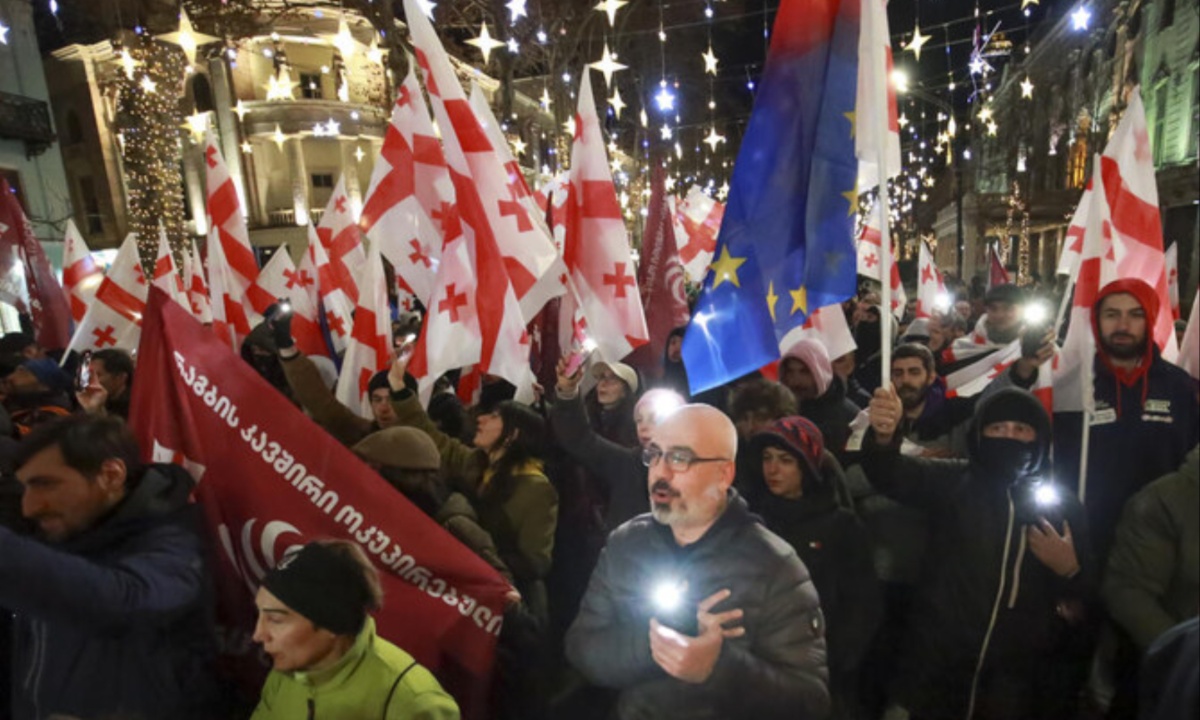Thousands of protesters gathered in Tbilisi as Mikheil Kavelashvili, a member of the Georgian Dream party, was inaugurated as Georgia’s president. This controversial transition occurred after the government suspended its EU membership bid, fueling public discontent. Georgian Dream’s parliamentary election victory in October has been fraught with accusations of fraud, leading to continuous demonstrations. Outgoing president Salome Zourabichvili refused to step aside, asserting her legitimacy while rejecting Kavelashvili’s presidency.
As Zourabichvili addressed supporters outside the presidential palace, she declared the building’s symbolism dependent on legitimate leadership. Meanwhile, Kavelashvili was sworn in during a private parliamentary ceremony attended by Prime Minister Irakli Kobakhidze and family. In his inaugural speech, he highlighted traditional Georgian values and the sanctity of the family, emphasizing themes central to Georgian Dream’s policies. Opposition parties rejected the process, boycotting parliament in protest.

The Georgian Dream government has faced mounting criticism for adopting authoritarian measures, such as targeting foreign-funded organizations, media, and the LGBTQ+ community. Its reluctance to impose sanctions on Russia and its hostile rhetoric toward Western allies have intensified public dissatisfaction. Despite constitutional support for EU membership, the ruling party delayed accession talks until 2028, a decision that sparked protests and increased public anger.
Demonstrations flared in November and continued through Kavelashvili’s inauguration, with protesters forming human chains and waving Georgian and EU flags. Riot police used tear gas and water cannons to disperse crowds, who responded with fireworks and stones. Many protesters voiced their determination to resist Russian influence and push for a European future for Georgia.
The situation drew international attention, with the United States sanctioning Bidzina Ivanishvili, the billionaire founder of Georgian Dream, highlighting global concern over the country’s direction. Zourabichvili, who initially gained office with Georgian Dream’s endorsement, has become one of its harshest critics. Her denunciation of the party’s policies and alignment with pro-EU protesters reflects deep divisions and a growing struggle over Georgia’s future.


